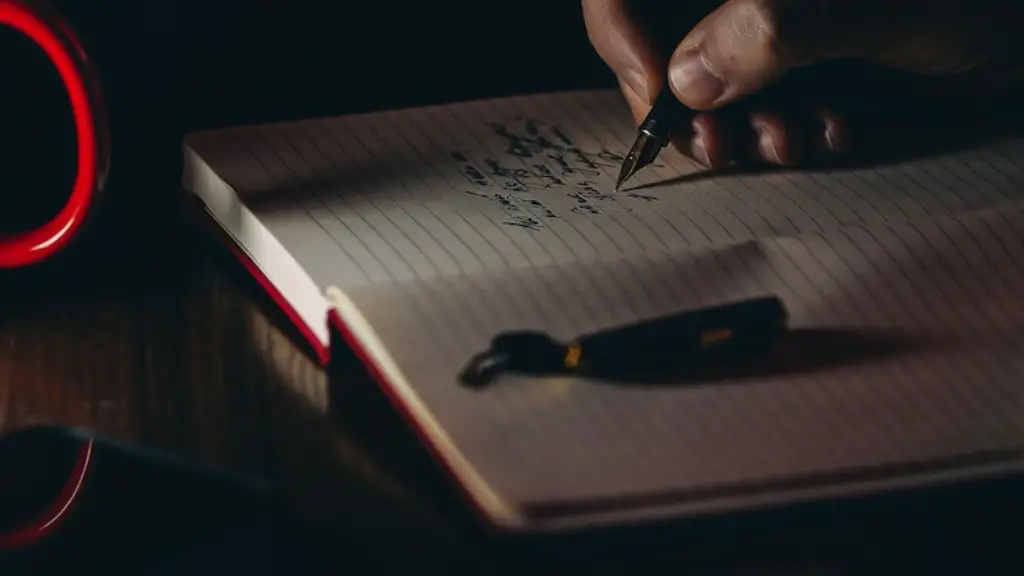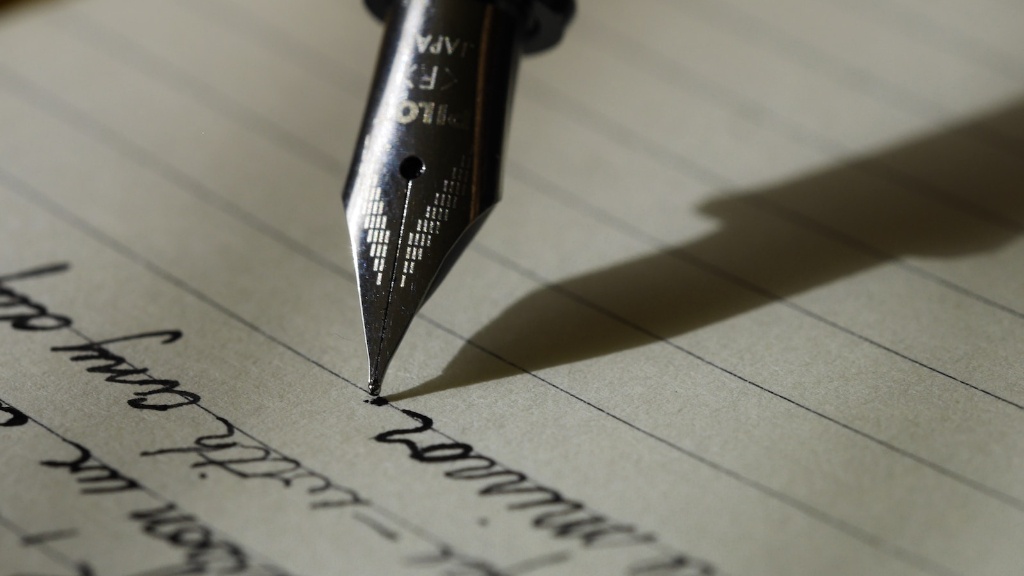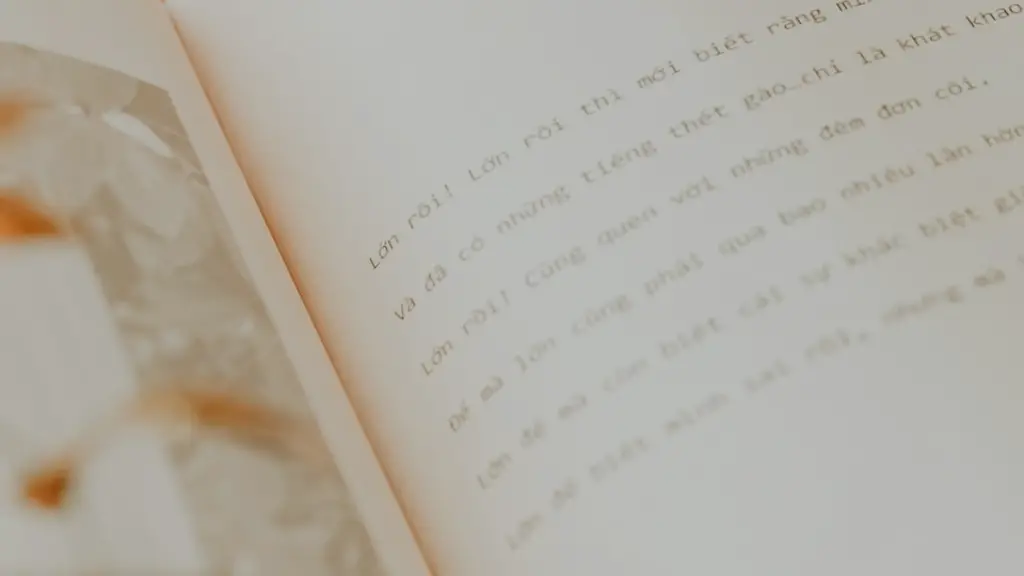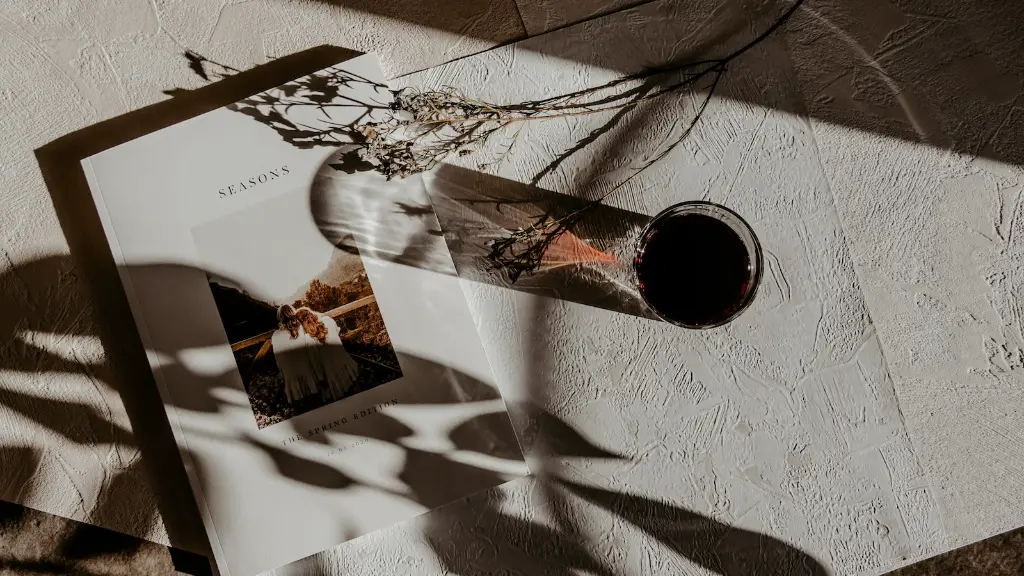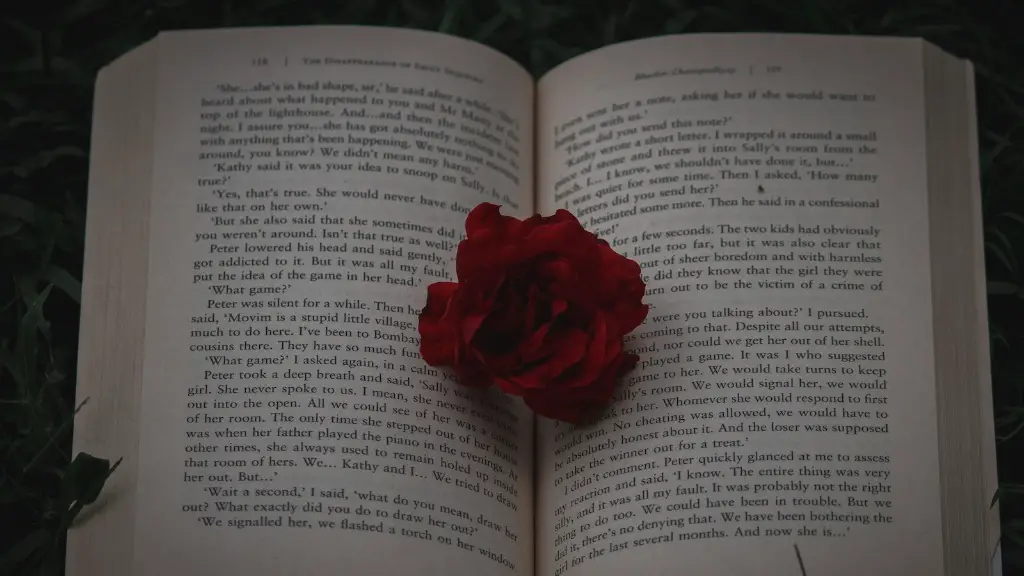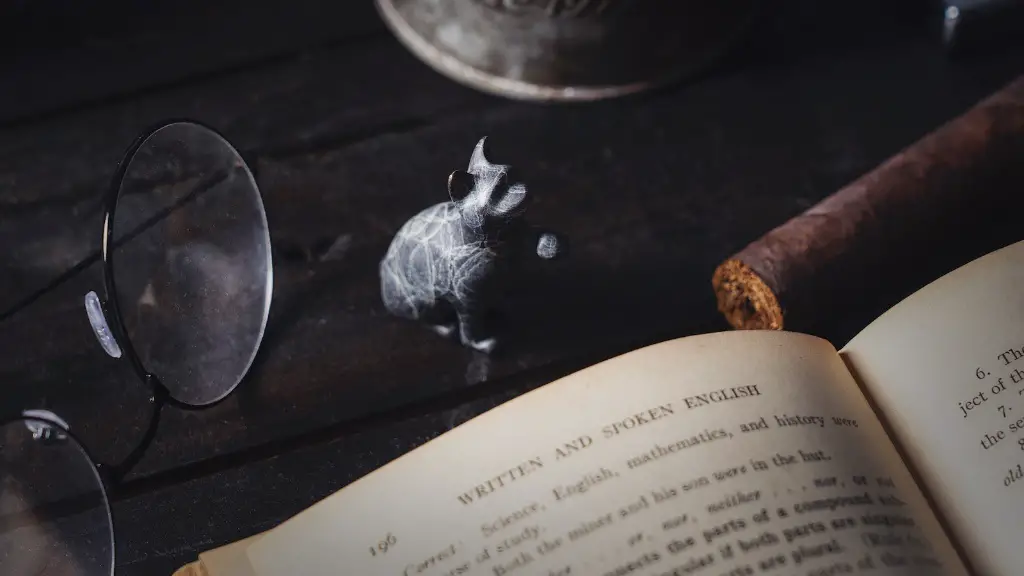Origin of the Word Poetry
The word poetry has its roots in ancient Greece. Its origin is found in two different words from the Greek language: poieo and poietes. The former means ‘I create’, while the latter means ‘maker’ or ‘poet’. Together, these two words make up the term ‘poetry’, which was first used in the fifth century BC by the Greek philosopher Aristotle.
Poetry has been used throughout history to express feelings and emotions. It has been used as a form of communication, an avenue for creative expression, and a tool for personal growth. According to Aristotle, every poet has a unique means of expression, because each person has a unique vision which can be expressed through words.
Aristotle also believed that the purpose of poetry is to elevate the emotions of the listener. This was done by using metaphor, symbol, and other literary techniques to create a ‘poetic effect’. He argued that this ‘poetic effect’ was essential in order for the audience to gain a deeper understanding of the works and appreciate the emotional content of the poem.
Over the centuries, poetry has been used for many different purposes. In the Middle Ages, for example, it was used as a form of storytelling and prose. During the Renaissance, poetry evolved into a more ornate and expressive art form, which was used by writers such as William Shakespeare to communicate their feelings and thoughts on life and love. In the modern era, poetry has become a widely used form of creative expression.
Today, the term ‘poetry’ encompasses all forms of creative writing, including free verse, spoken word, and haiku. For many poets, writing poetry is a way to explore their own emotions, experiences, and beliefs, while also engaging in social and political commentary. It is a powerful form of expression that has been described as ‘language on fire’.
Relevance of Poetry in Society
Poetry has the ability to move, inspire, and inform people. It can bring to light powerful, personal stories and impart important lessons. Its use in contemporary society has been an essential part of the movement for social justice, as well as the celebration of diversity.
In modern times, poetry can be found in almost every culture and language. In addition to being a popular form of creative writing, it has also become a powerful form of activism, allowing people to express their feelings, opinions, and values without the interference of censorship.
The use of poetry in society can also be found in literature, music, film, theatre, and art. Many of the world’s greatest thinkers and leaders have used poetry to communicate and advocate for change, from Martin Luther King, Jr., to Maya Angelou, to Muhammad Ali.
It can also be used to console and comfort those in pain, to offer support to those who feel alone, and to inspire hope in those who may feel overwhelmed and discouraged. Through poetry, people can connect with each other, express themselves in a meaningful way, and contribute to a more tolerant and inclusive society.
Variety of Genres in Poetry
Poetry is a broad and diverse genre, encompassing many different styles and forms. From sonnets and haiku to rap and spoken word, there is a variety of ways to express oneself through the written word.
Some of the most popular genres of poetry include free verse, limericks, haiku, sonnets, and odes. Each of these genres has its own style and structure, and each type of poem has a unique way of conveying emotion and conveying ideas.
For example, free verse poems are typically written without traditional meter or rhyme scheme, allowing for greater flexibility and creativity in the expression of ideas. A limerick, on the other hand, typically has a fixed meter and rhyme scheme that create a sense of humor and fun.
Haiku, which originated in Japan, is a type of poem composed of three lines with a total of 17 syllables. This brief and concise style of poetry is often used to reflect on nature or evoke emotion through imagery and metaphor. Sonnets, which originated in Italy, are typically composed in iambic pentameter and are structured in 14 lines. They are typically written in a way that expresses some kind of romantic sentiment.
Odes, also called lyrical ballads, are often used to express intense emotion and praise for a person, object, or concept. This form of poetry typically has a fixed meter and rhyme scheme, and is often written in a way that describes the beauty of something or someone.
Influence of Poetry on Art
Poetry has been a major source of inspiration to artists of all kinds. It has had a powerful influence on visual art, music, theatre, and film, and has often been cited as a major source of inspiration for writers, painters, sculptors, musicians, and filmmakers.
For example, the works of the French painter Paul Cezanne have been heavily influenced by his passion for poetry, and his paintings are often compared to the works of the French poets Baudelaire and Mallarme. Similarly, the films of the Japanese master Akira Kurosawa have often been compared to works of Japanese poetry, due to the lyrical and poetic aesthetics of his films.
The use of poetry in art has been used to evoke emotions, express ideas, and promote creativity. It can be used as a tool for personal expression, as well as a tool for social and political commentary.
By using poetic imagery and words, artists can create powerful works that connect emotionally with the audience and inspire them to think more deeply about the world.
Uses of Poetry Today
Today, poetry continues to play an important role in society. It can be found in all kinds of forms, from spoken word to music to books.
In recent years, it has become increasingly popular as a form of self-expression and creative writing. There are many different outlets for poets to share their work, such as online journals, poetry slams, spoken word performances, and competitions.
Poetry can also be used as a form of activism, as it allows people to voice their opinions and feelings without the interference of censorship. Poetry has the power to bring people together and build connections and understanding.
Many people look to poetry for hope, solace, and guidance. It can be a refuge from the chaos and stress of everyday life, and can give us a sense of perspective and clarity. Through poetry, we can explore emotions, express ideas and beliefs, and share stories.
Preservation of Poetry
The preservation of poetry has become increasingly important in recent years, in order to keep its timeless stories and messages alive and available for future generations. There are many organizations and initiatives dedicated to preserving and sharing the works of poets, both old and new.
The Poetry Society of America is an organization that works to promote poetry by offering workshops, readings, and educational resources. Similarly, the Academy of American Poets is an organization that works to support contemporary American poetry.
The Poetry Foundation is another organization that works to promote and celebrate poetry, by offering a library of poems and information, and hosting poetry readings and other events. And the Library of Congress has established a website dedicated to the preservation, digitization, and accessibility of poetry collections all over the world.
These organizations and initiatives play an important role in preserving the legacy of poetic works and making them available to the public, so that they can continue to be appreciated, enjoyed, and studied by future generations.
Future of Poetry
The future of poetry looks bright, as more and more people are discovering its power to connect and make an impact. Poetry continues to be an important form of communication and creative expression, and it will likely remain so for many years to come.
As new forms of communication and technology become available, poetry will likely evolve with them. For example, more and more poets are beginning to explore the use of multimedia, such as video and music, to enhance their work and reach larger audiences.
Social media has also made it easier for poets to share their work with others, allowing for increased collaboration and dialogue between writers and readers. This has enabled poets to connect with one another, share their work, and gain recognition and support from a larger audience.
It is exciting to see how poetry continues to evolve and push the boundaries of creative expression. As the world changes, so too will the art of poetry, and it will continue to be an important part of our culture for many years to come.
